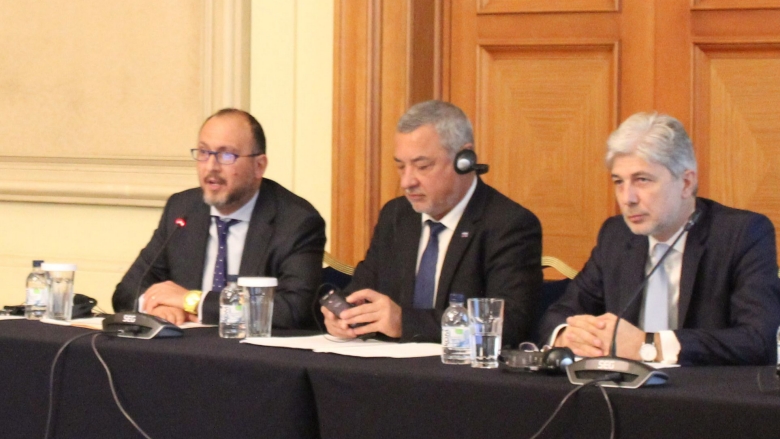Dear Deputy-Prime Minister,
Dear Minister,
Dear partners and guests,
It is a great pleasure to welcome you at today’s event aiming to present the proposed actions for improving the air quality in Bulgaria.
The World Bank is grateful for the opportunity to partner with Bulgaria in its goal to protect the country’s natural assets. A key component of our Country Partnership Strategy is to support the authorities of Bulgaria in better protection and management of its natural assets, including the improvement of air quality.
In this context, the World Bank is working in support of the government-led agenda, and the Ministry of Environment and Water, in particular.
This task has provided us with the opportunity to bring our world class expertise and global experience, coupled with an objective assessment of the air quality in Bulgaria.
The worldwide situation painted by our experts is not rosy. A 2016 Bank report stresses that air pollution is responsible for 1 in 10 deaths, right behind smoking, and that 87% of us live in areas where air is unsafe to breathe. Air pollution comes from multiple sources that must be well understood and monitored to design cost-effective plans across sectors. But one thing is certain: when welfare costs related to air pollution amount to more than $5 trillion, there are lots of cost-effective things we can do with our clients do to save lives
And the experience of other countries shows that making meaningful progress on this agenda is not easy, but it is possible. It requires coordinated efforts and policies across many different sectors combined with strong commitment and leadership from the relevant institutions, as well as dedicated public funding to support difficult measures at local level.
It is our understanding, however, that the best way we at the World Bank can contribute to building consensus among the different stakeholders is to provide robust evidence and data to all parties so that decisions are guided by evidence and facts.
World Bank projects in Chile, Mongolia and Peru demonstrate the importance of an active dialogue with all stakeholders in developing countries; the need for integrated approaches that start with identification of all pollution sources and end with identification of cost-effective interventions; and the need to involve multiple sectors – from transport to health, urban planning and agriculture.
Experience also shows that where countries have made progress in addressing air pollution, a combination of technical, policy and economic measures were effective. For example, in China, pollution discharge fees were instituted in cities, and Mexico City removed regressive and inefficient fossil fuel subsidies.
Thank you, and looking forward to hearing more about air quality measures in Bulgaria.


